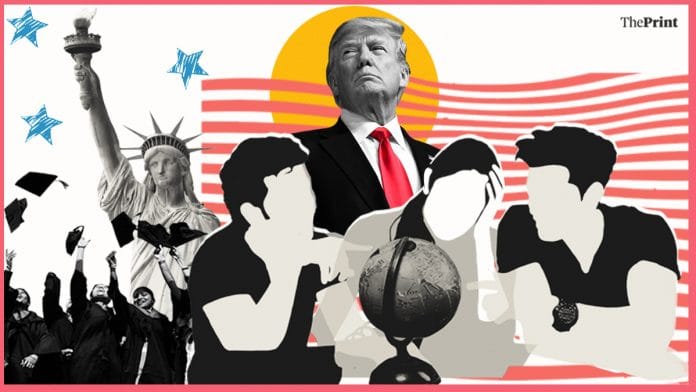Hyderabad: Six of Sohrab Abedi’s clients are scheduled to appear for their H-1B visa interviews in the next two months. But Abedi, who runs an immigration consultancy firm in Hyderabad, is left confused after Trump hiked the H-1B visa fee to $100,000. He is unsure if his clients’ employers will pay the hefty sum.
At a time when AI is posing a threat to the IT industry in the US and to those whose livelihoods are tied to it, President Donald Trump’s executive order requiring companies hiring H-1B visa holders to pay $100,000 is just as much a game-changer. The aftermath is being felt in Hyderabad, a breeding ground for skilled workers who are essential cogs in the tech industry.
Besides students looking to leverage their American STEM (Science, Technology, Engineering and Mathematics) degrees for this visa that grants them legal status to work, employers, immigration/visa consultants are also feeling the after effects.
This move took Abedi, the founder of Immigration House in Hyderabad’s Basheer Bagh area, by surprise.
According to him, six of his clients are to appear for their H-1B visa interviews in October or November. Their applications were a part of the draws that took place earlier in April.
“We are unsure as to whether their employers will have to foot this fee,” Abedi said
While Indian citizens, who are either students or bonafide professionals, tend to be equipped with certain skill sets, sometimes the sponsorship or even other costs such as hiring an immigration attorney act as deterrents to American employers.
This leaves not only Abedi, but also those who solicit his services flummoxed.
Because, according to him, people will only come forward when there is clarity about the system. While some judicial help in the vein of the stay order against the move to abolish birthright citizenship may be in order, there is still a lot of uncertainty.
‘Diversifying offerings’
However, Arun Kotha, co-founder of Visa Tree Consultants, a Kothapet-based consultancy that mostly specialises in student visas, saw this coming. Around three months ago, one client with 10 years of experience in the IT sector received his visa, but was refused entry.
During the spate of airport immigration officers refusing entry, this client was deported back to India. Many students and working professionals tend to prefer the United States, especially with an active and dynamic Telugu diaspora.
Usually armed with their B.Tech or engineering degrees, the students look to gain admission to a college with a Masters in data science or cybersecurity. For them, the degree is a springboard to a period that allows them to work for three years for a STEM employer.
But considering that one of its clients had been refused entry and Trump’s other crackdown initiatives were well underway, VisaTree had begun further diversifying their offerings beyond the US. “We put together a team of agents and those who closely observe government policy to observe these trends and be prepared to advise clients regarding options to migrate.”
Instead, Kotha nudges clients to consider educational and employment avenues in New Zealand and European countries like Italy.
On the other hand, as of now, Immigration House mostly concentrates on Canadian immigration and H-1B applications. Thus, Abedi and his clients are just waiting to see how this pans out.
Though Kotha is optimistic that there will be either a rectification of this new rule or an outright revival of the older immigration policies of the previous regimes, for him, it is a part of the cycle that he has to adjust to for his clients.
Daneesh Majid is a Hyderabad-based writer with a master’s in South Asian Area Studies from the School of Oriental and African Studies in London. He is also the author of the HarperCollins-published book, ‘The Hyderabadis: From 1947 to the Present-Day’.
(Edited by Aamaan Alam Khan)






